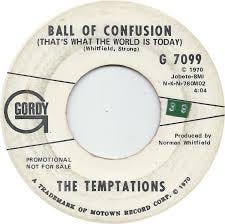Everyone has an opinion about the US deep state.
‘Georgian Prime Minister Irakli Kobakhidze on Sunday said if Trump “frees the United States from the deep state”, the development would “improve relations” between the two countries.’
Interesting comment here. If political leadership can force competitive pressure on the bureaucracy, can it make it more efficient?
With whom would the government bureaucracy compete?
The best alternative is to outsource it. For example, air traffic control in the United States is an anachronism. Canada did this in the 1990s, outsourcing air traffic control to a self-financing, non-profit called NAV Canada.
Canada has much better air traffic control than the US. American airlines complain about this routinely. It imposes costs on them. They pass these on to fliers, in turn.
‘One of the disadvantages of a bureaucratic workplace is that it can incentivize office politics, meaning employees spend more time currying favor with superiors or trying to gain an edge with peers than they should.
‘Bureaucracies are also known for excessive paperwork, inflexibility to change, and inefficiency.
‘They tend to be found in institutions that are better protected from competitive market pressures, such as the government, universities, and oligopoly businesses like big banks and insurance companies.’
New York vows to ‘fill the gaps’ left by Donald Trump’s regulation rollback
New York is confident that banks won’t relocate in response to the state taking over the regulatory room created by the Trump Administration’s deregulatory agenda.
The former Obama official speaks with confidence. Time will tell.
‘New York’s financial watchdog is ready to “fill the gaps” left by the incoming Donald Trump administration’s planned deregulation spree, its chief has said, by increasing its scrutiny on banks, insurance companies and cryptocurrency groups that transact in the world’s commercial capital. Adrienne Harris, head of the state’s Department of Financial Services, which licenses many of the globe’s largest financial institutions including Goldman Sachs, ICBC and Deutsche Bank, told the Financial Times that a rollback of federal regulations would “certainly increase the volume of consumer protection cases that we may bring on the enforcement side”.’
‘Sup, DOGE! You should meet RIC, the Regulatory Improvement Commission.
I’m old but I seem to remember a math problem about a bathtub where the water was going in at one rate and draining at another rate. Or something like that.
Federal regulations are like having a bathtub with no drain and turning the taps all the way on.
One proposal here is for a more bureaucratic process to review rules the reform of which would be fast-tracked in Congress with up-or-down votes.
This is something that was proposed over ten years ago. Still waiting.
Maybe it is time to move fast and break things.
‘The fundamental problem is that the federal government has a large, multi-faceted and very effective apparatus for crafting and promulgating new regulations, but no mechanism for regular, systematic and independent review to address ineffective, duplicative or outdated regulations.
‘With this reality in mind, Mandel and Carew have proposed the RIC. Modeled on the Base Realignment and Closure commission — which provided independent, objective, nonpartisan review and closure recommendations regarding U.S. military installations — the RIC ’s purpose would be to serve as a procedural mechanism for the regular evaluation, simplification, consolidation and elimination of existing regulations.’
Biden leaves mark on four technology regulation areas
How much change will we see in antitrust? Maybe not as much as people think.
‘Slater's appointment in particular indicates Trump won't ease up antitrust law enforcement, said Joseph Coniglio, director of antitrust and innovation at the Information Technology and Innovation Foundation. Slater, a former FTC staff attorney and former general counsel for Roku Inc., most recently served as a staffer to Vice President-elect J.D. Vance, who has publicly supported breaking up Google. The previous Trump administration initially brought the online search antitrust case against Google.
‘"The appointment of Gail Slater makes clear there's going to be continued scrutiny of the technology industries from the Trump antitrust division," Coniglio said.
‘He added that he expects tension within the Trump administration when it comes to balancing antitrust and going after big tech, while also promoting U.S. competition with China.’
Economic models of regulation do not have much explanatory power when we look at what happens in practice. Public choice takes a step in the right direction. But the simple models fail to capture what’s really happening. In doing so, they encourage more regulation.
Here’s a new candidate theory of regulation. It’s intuitively obvious.
‘How should we think about regulation? What basic stories should we tell to frame the phenomenon? My friend Carl Danner has an intriguing new candidate, the “Commandeering Theory” of regulation. He explains in a nice article at the CATO review. In Carl’s words,
`In a nutshell, this new theory holds that government can use its regulatory authority to pressure or require a firm to exercise its influence to fund desired projects or shape customer behavior.`



